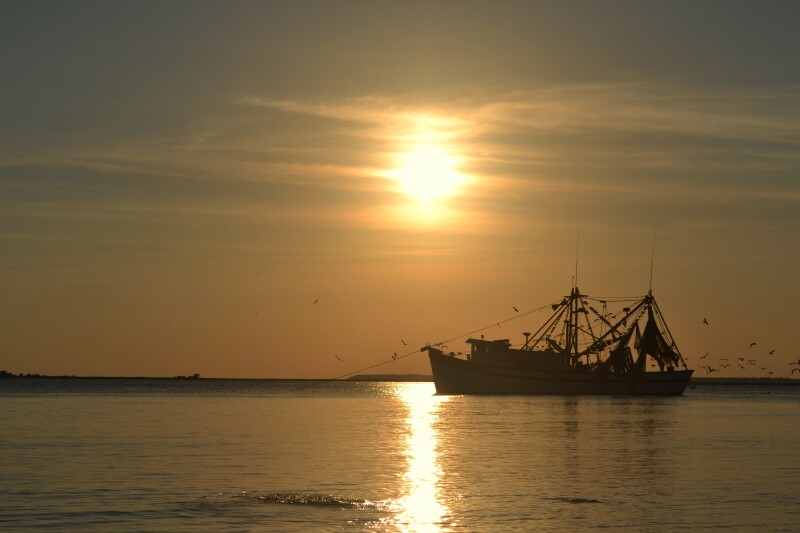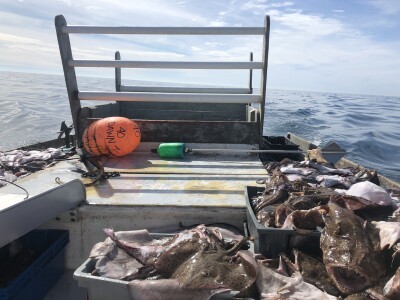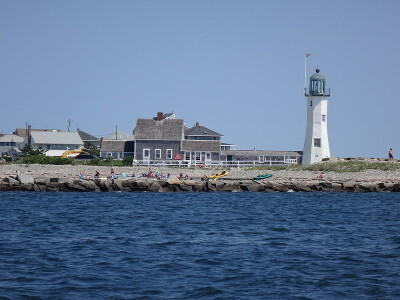Pounded by dockside prices under $1 a pound, southern U.S. shrimp fishermen and their elected officials are calling for state and federal declarations of a fishery disaster over what they say is dumping of foreign shrimp on the U.S. market.
“Due to the influx of imported shrimp entering the state of Louisiana, which is allowing foreign countries to dominate our Louisiana shrimp industry…shrimp harvesters are receiving lower than $1 per pound for their shrimp product which is lower than they have ever received in years past,” wrote president Acy Cooper Jr. and other members of the Louisiana Shrimp Association in an Aug. 25 letter to Louisiana Gov. John Bel Edwards.
With operating costs also rising, “commercial fishing vessels are forced to remain dockside and businesses are being forced to shut down their operations,” the letter states, asking Edwards for an emergency declaration.
That same day the Southern Shrimp Alliance sent a letter to Southern governors from North Carolina to Texas urging disaster declarations. The group noted that in 2022 Congress changed the statutory authorization for the federal Fishery Disaster Assistance program to allow the U.S. Secretary of Commerce to take action when a fishery is hit by man-made disaster “otherwise beyond the control of fishery managers to mitigate through conservation and management measures.”
“The global supply of predominately farm-raised shrimp has reached records highs and has far outstripped global demand. U.S. imports of frozen warmwater shrimp nearly doubled from 2013 to 2021 to an unprecedented level of 1.8 billion pounds,” according to the alliance letter.
“U.S. inventories of shrimp are overwhelmed; driving prices paid to shrimp fishermen to record lows that cannot cover the costs of a shrimp fishing trip – expenses further exacerbated by historically high fuel prices and inflation,” the letter states. “Faced with the choice of losing money on a trip – or not being able to sell their catch at all – shrimp fishermen throughout the region remain tied to the dock with no income at the height of the season.”
In Bayou La Batre, Ala., the city council adopted an Aug. 17 resolution likewise calling for state and federal disaster declarations.
“The recent influxes of imported shrimp into the United States markets have affected the ability to market and see wild caught domestic shrimp,” according to the council’s resolution. “The magnitude of the potential damage and the rapidity with which the continuation of the decrease of the marketability of domestic shrimp is an imminent threat of disaster.”
The U.S. International Trade Commission has maintained anti-dumping duties on frozen warm-water shrimp since 2005 and in June renewed those duties on product from China, India, Thailand and Vietnam for another five years.
In a new research report, the Southern Shrimp Alliance point to “the role of international financial institutions, like the World Bank, in the creation of excess shrimp aquaculture capacity throughout the world.”
The report, titled “A Crisis of Our Own Making”, says some 50 years of work by multilateral organizations went into the expansion and development of shrimp aquaculture in Asia and Latin America.
“This funding has been integral to the rise of the Indian shrimp industry and, more recently, the Ecuadorian shrimp industry as the dominant suppliers of the commodity around the planet,” according to the Southern Shrimp Alliance. “However, as all shrimp producers, including American shrimpers, now confront a global oversupply of shrimp and saturated world markets, multilateral groups like the World Bank’s International Finance Corporation have increased their participation in the industry, supporting even greater expansion of shrimp production capacity.”
That excess capacity and oversupply has cut prices across the board, leaving U.S. fishermen struggling to find customers while foreign producers likewise cut prices to defend market share.
But new international projects continue to promote shrimp farming expansion, the alliance says. U.S. representatives to those financial institutions should be opposing those new projects, which also leads to “the decimation of mangrove ecosystems to make way for more shrimp farms,” the group notes.
“All across our Southern coast, shrimp boats are tied up and fishermen are not working,” said John Williams, executive director of the Southern Shrimp Alliance. “This industry operates without a safety net and we are losing businesses every day. Learning that our tax dollars are being used to make the nails for our coffins is too much and requires all of us to say enough is enough.”







